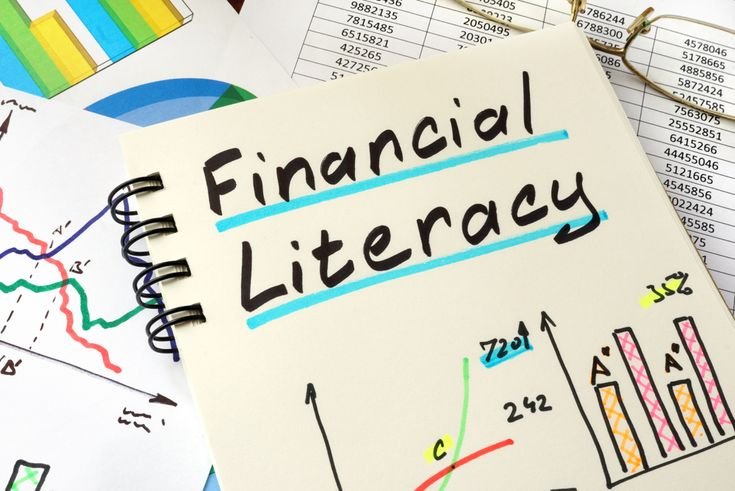
Financial literacy means understanding one’s finances. Financial literacy includes:
- Becoming skilled at managing one’s finances.
- Learning about budgeting.
- Adjusting debt and credits due.
- Making investments.
By becoming literate and knowledgeable, you gain an essential relationship with your money or capital, through which you can earn more. It is necessary to be educated to achieve a balanced financial status.
Adverse impact of financial illiteracy:
Not gaining any information, knowledge, or education about managing your finances is very harmful and can lead you to make stupid decisions in the race to make more money. Such an illiterate person will never be able to gain financial literacy stability in this life because of the absence of a long-term economic plan, poor investment options, and less savings. He will eventually face bankruptcy shortly. Not only that, but further adverse outcomes and consequences will be waiting for him at crucial stages of life.
As the world grows, the demand for financial literacy has increased; it’s evolving and growing daily with the help of new and upgraded technology and massive economic changes. In 2024, it is essential to understand such brutal, complex policies and updates of the financial system to gain financial security. Several aspects and strategies are discussed below so you can gain more insight and knowledge about managing finances.
Budget making and tracking of expenses:
The conventional budgeting method for ages has been writing down the earnings and expenses and working accordingly. However, the technological revolution has arrived, providing us with financial apps and tools that have become vital for managing finances. These apps are getting more advanced these days, presenting features like the automatic categorization of expenses, tracking in real-time, and optimization of spending with the help of AI-given insights. It gives users personalized recommendations based on their own financial goals and lifestyle.
Savings and Emergency Funds:
It’s essential to have savings and emergency capital to maintain financial equilibrium. Savings have been a traditional way to combat economic fluctuations; however, global inflation after COVID-19 has made us feel the need for a more robust emergency fund. Due to such uncertainty, experts recommend having emergency funds equivalent to at least six months of living expenses. High-return savings accounts and ROI are more accepted options for growing emergency funds.
Debts and due credits management:
In this digital age, strategies have upgraded with the technology, giving rise to special financial tools. Multiple apps, including credit card managing apps, debt consolidation platforms, and AI-driven budgeting tools, help individuals track their debts and manage repayments strategically. Understanding every bit of credit score, interest rate, and repayment options is essential for successful debt management. These new tech applications have been used to negotiate low interest rates or, at times, consolidate high interest rate debts into manageable payments.
Further core aspects can be discussed later; however, the benefits and growing demands for financial literacy show us its actual worth.
Benefits of Financial Literacy:
Noticing the core aspects, it is evident that financial literacy is beneficial for us to understand how to manage our finances and make intelligent decisions about them. Solely talking about benefits, there are specific points to discuss here, which are as follows.
Financial literacy prevents us from making stupid financial decisions, which might wreak havoc on our economic stability. Multiple interest rate options, legalities, and policies exist in different loans. Floating-rate loans have different monthly rates, or individual retirement accounts cannot be accessible until you retire. These points, at times, need to be noticed by individuals who are aware of different financial facts, which may lead to making wrong decisions that have long-term and negative impacts on financial planning. Financially literate individuals will avoid such unnecessary mistakes about their finances.
Preparation for future financial emergencies:
A financially literate person is always prepared for financial uncertainties and emergencies. Savings and regular expense tracking can help you remain stable during hard times like losing a job or unexpected financial loss. A patch of regular savings or emergency funds can reduce these financial traumas.
Gains confidence:
A person with a financial plan is always confident, acquires all the necessary information and stability, and has a balanced life, a vital requirement. With financial knowledge and skills, individuals can make big, life-changing decisions more confidently. Such confidence and knowledge will cause them to achieve the desired outcomes and be less likely to get negative results.
Achieving goals and aims:
If you effectively manage your finances, something unaffordable today can be yours. By understanding finances better, you can achieve financial security, achieve your goals, know how to track your expenses, budget, and save, plan your finances, invest them, and achieve better economic outcomes. Setting an aim and using your finances to gain that spot greatly benefits your and your family’s future.
Worth and increasing demand for financial literacy and knowledge:
Every person wants and aims for financial security, equilibrium, and long-term stability, and all can be achieved if he understands how to manage his finances. He can gain such status by being financially literate and can understand complex policies and how the financial system works.
Financial literacy is gaining more fame than ever in this era as people learn how vital it is to be educated and gain a monetary balance in life. As things get more complex and economic policies evolve, one needs to be skilled and updated about finances. Education always empowers people to be careful and confident enough not to fall for scams, not to make poor decisions, and to make them aware of different updates and evolutions.

Leave a Reply